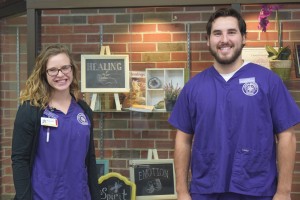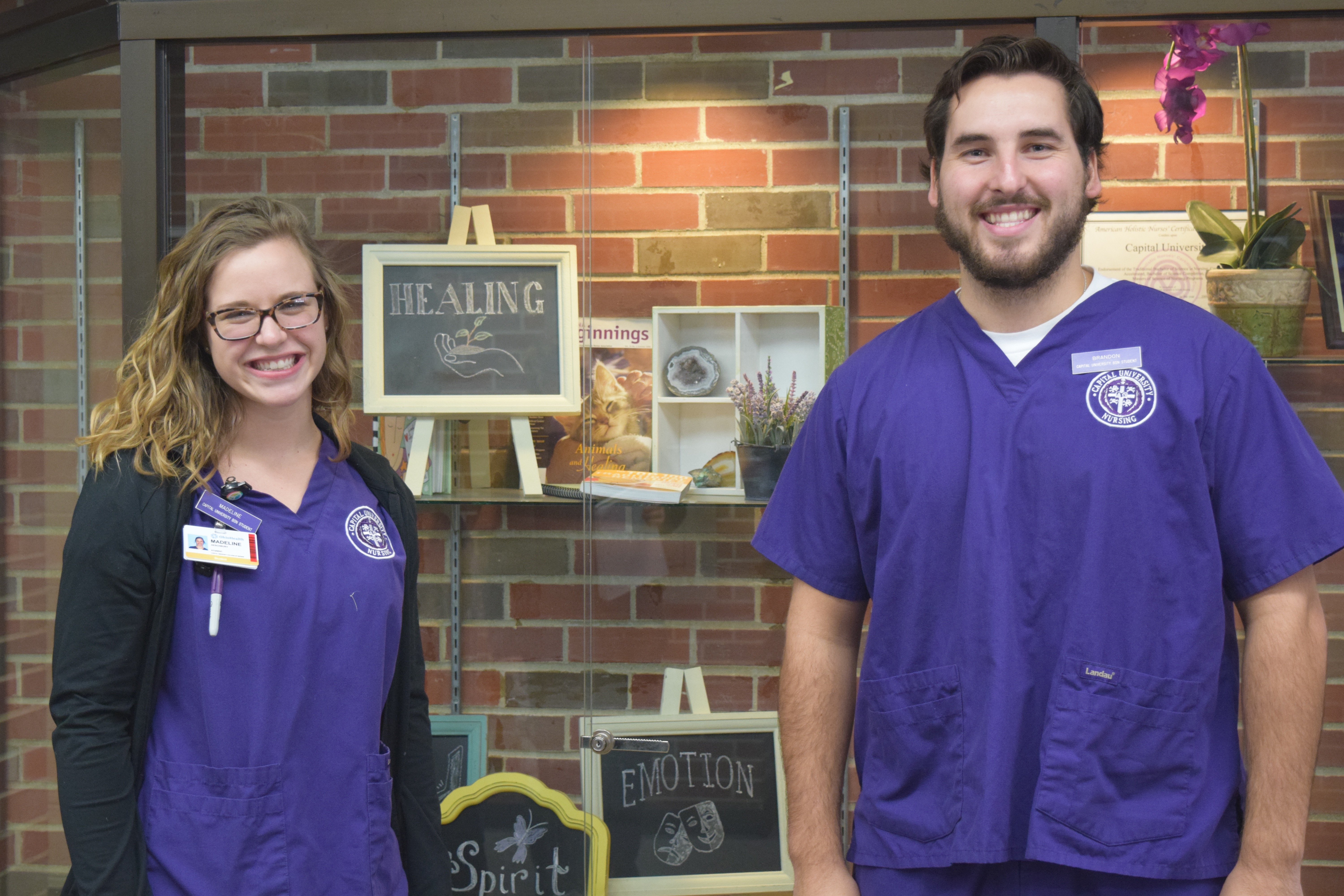
It’s no secret that being a nurse is demanding, complex, and at times extremely stressful. Because of these factors, it seemed important to sit down with a couple of nursing students and see what was involved with the classes, internships, and everything in between.
Seniors Brandon Sholl and Madeline Aeschbury are both in their last semester at Capital. Aeschbury hopes to become involved in pediatrics or wound care (surgery sites), while Sholl is interested in working with patients in critical care/trauma situations.
A majority of nursing students take on the major for personal reasons. Sholl decided on nursing because of his long-time interest in medicine and desire to help people.
Aeschbury, on the other hand, dealt with illness and surgery during her younger years, and has always been appreciative of the nurses that took care of her.
“I was inspired by the role” Aeschbury said.
Both students agree that they think hte biggest reason for students deciding to become nurses is their passion for the area of work. It’s so important to be passionate about the work because, as Sholl said, “a large obstacle [of the major] is time commitment.”
Most nursing students have extremely hectic weeks, especially during their senior practicum, known among the nursing crowd as a preceptorship. During this process, students are each assigned to a working nurse that they are to shadow.
For the first few preceptorship shifts, shadowing is all that the students are expected to do. After those shifts, the students are then expected to begin assisting the nurses in their day-to-day job duties, eventually taking over most of the responsibilities. This experience is considered class time; therefore, it is unpaid.
Nursing professor Diane Patterson agrees that the time commitment is a huge obstacle, but believes there is one that is even bigger. According to Patterson, the largest obstacle that nursing students face is “transitioning from high school study habits … to studying for a major that requires a comprehensive licensing exam at the end of four years.”
For nursing students, every exam can make or break their grade. Students can sometimes commit 18 hours a week to just one class between class time, studying, and working in a hospital during their shadowing experiences.
The nursing program typically loses about half of the students that originally are accepted into it, particularly for reasons like time and pressure.
“There were at least 100 students in our freshman class” Sholl said. Aeschbury added “There’re probably under 40 now [in the class of 2016].”
Patterson said that a lot of students leave the program for other reasons too, like finances, GPA, or because nursing just wasn’t what they expected it to be.
The most important part of the profession, according to Aeschbury, is to “be mindful and be present.”
Nurses are the unsung heroes of the medical community, and Capital’s program assures that talented, professional nurses come out of the program ready to hit the ground running.
“[A patient] isn’t going to remember some doctor who preformed surgery [on them],” Sholl said. “They’re going to remember the nurse that was there when they woke up.”

